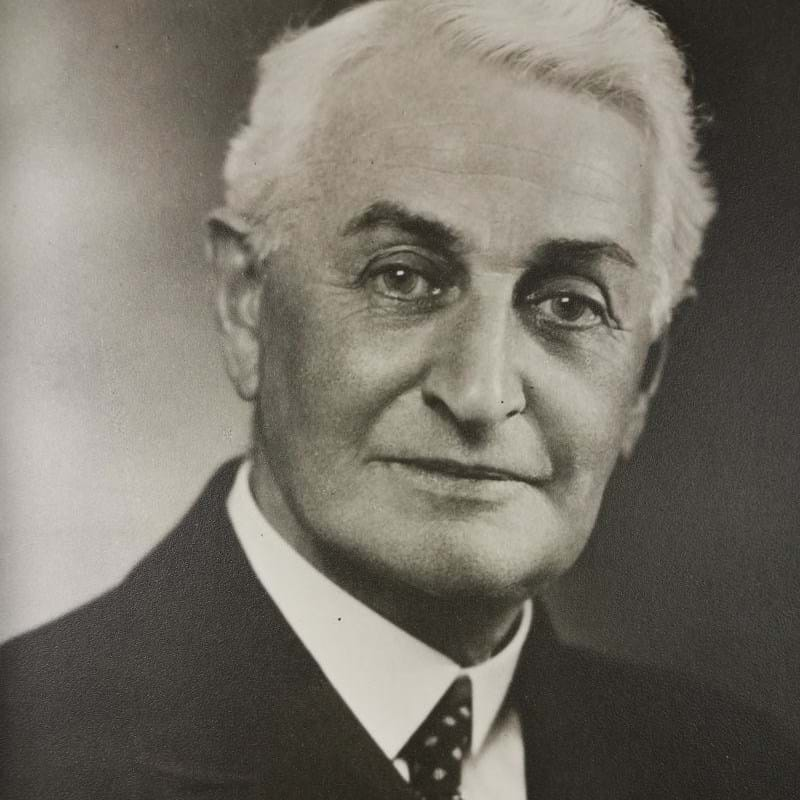
William Cullen: 1937–1939
Dr William Cullen was born on 18 May 1867 at Shettleston in Scotland. He was educated locally and at Hutchinson's Grammar School and then at the Andersonian College, Glasgow, where he studied chemistry under Professor Ditmar and remained as his assistant for five years. Finally, he completed a course in metallurgy at the Royal School of Mines in Freiberg, Germany.
In 1890 he joined the staff of Nobels Explosive Co Ltd, rising to the position of Superintendent. He went to Kynoch's at the beginning of 1898 but returned to Nobel's in 1901 and was immediately appointed General Works Manager of the Modderfontein Factory of the British South African Explosives Co Ltd, then one of the largest in the world. As a young manager, 34 years old, he successfully steered the affairs of the company through the remaining period of the Boer War.
William Cullen became President of the Chemical Metallurgical Society of South Africa in 1905 and, at the same time, he was also Honorary Secretary of the South African Association for the Advancement of Science and was jointly responsible with Sir David Gill for the visit to South Africa of the British Association that year. Simultaneously he was Second-in-Command of the Johannesburg Mounted Rifles. In 1908, along with many others, he was very active in the so-called "Union" movement which culminated in the linking up together under one government of the four provinces of South Africa.
He was one of those who initiated the fight against silicosis and was largely responsible for the inauguration of a scheme of apprenticeship on the mines. He was active in all forms of education control and reform, presiding over many boards and commissions. For eight or nine years he commanded the Imperial Light Horse, he originated the South African Red Cross Society and was its first Chairman.
He returned to England in 1915, on the invitation of the Chilworth Gunpowder Co, to take charge of an important scheme in connection with munitions, which did not come to fruition. He became, however, the Director of the South African company on his arrival and acted in this capacity until it merged and became Nobel Industries Ltd in 1917. The name of the parent company subsequently changed to Imperial Chemical Industries Ltd. He also joined the staff of the Ministry of Munitions when he returned to England and continued his services as a volunteer until 1919.
Once back in England he also committed himself to a greater participation in the affairs of scientific and technical societies, and was also a member of the Advisory Council of the Imperial Institute, a member of the Executive of the Empire Universities Bureau, and a selected member of all the Surrey County Council Education Committees. He was President of the Institution of Mining & Metallurgy in 1929-1930, a member of the Council of the Society of Chemical Industry, and a Vice President, from 1934-1937, and a member of the National Committee for Chemistry of the Royal Society.
His first association with the chemical engineering movement was as a member of the Committee of the Chemical Engineering Group and before becoming President had served the Institution for several years on Council and on a number of its committees.
Return to list